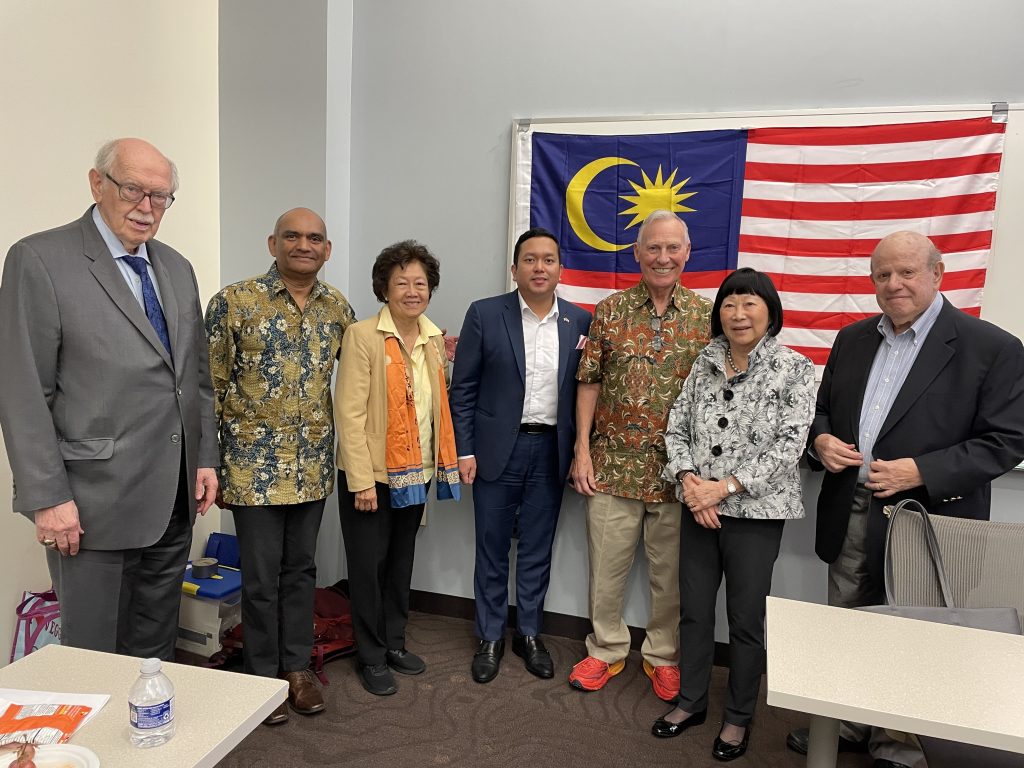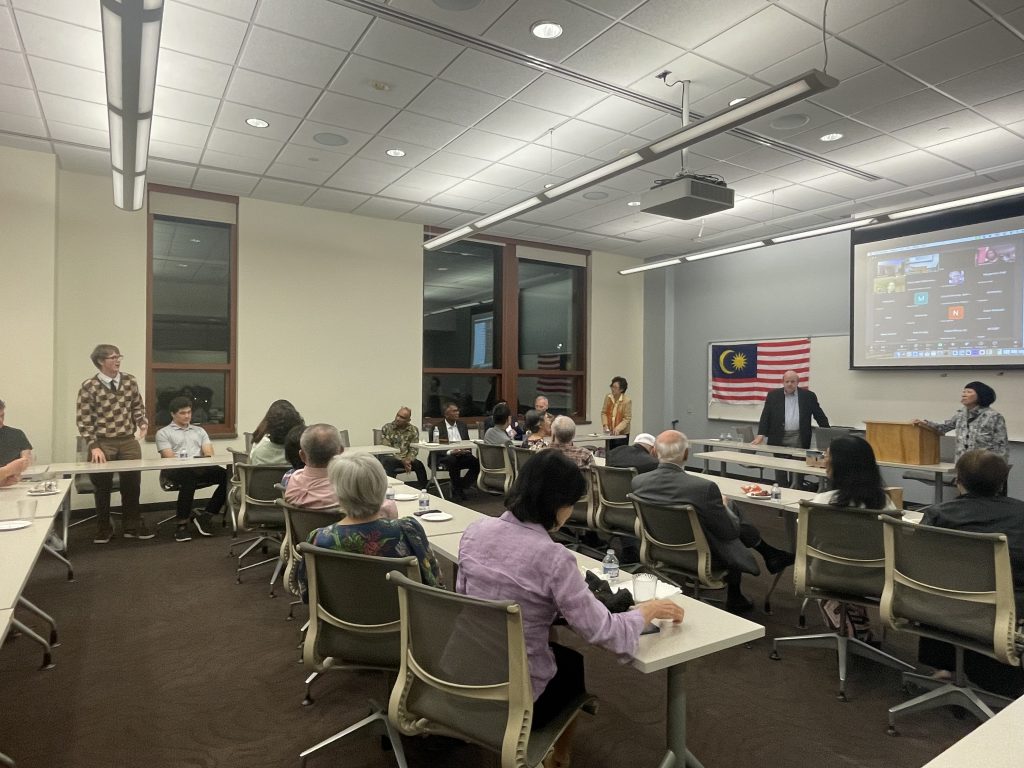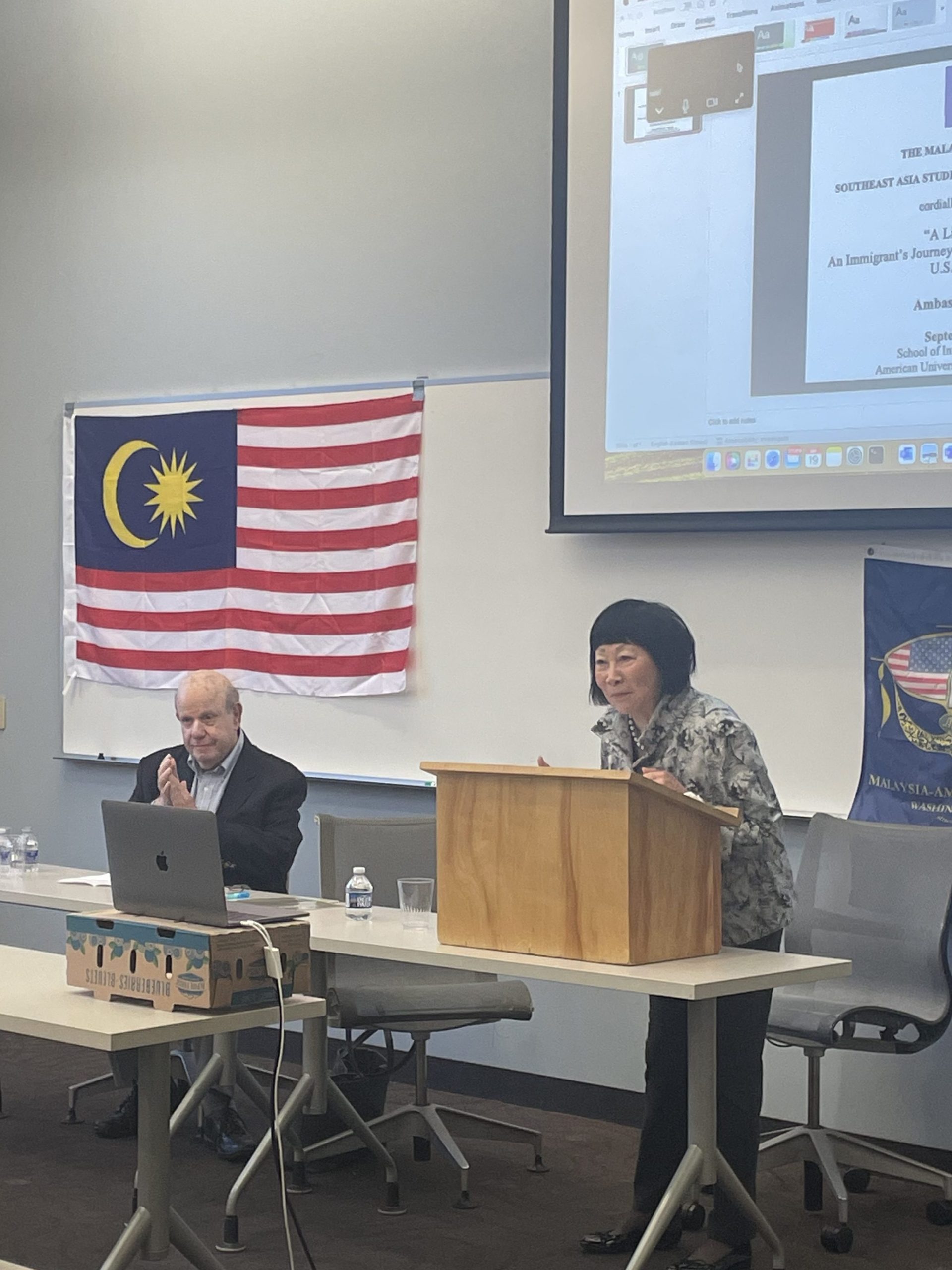
On September 19, 2025, the Malaysia-America Society (MAS) and the Southeast Asia Student Network (SEANET) co-hosted a hybrid talk at American University’s School of International Service titled “A Lifetime in Public Service: An Immigrant’s Journey from Peace Corps Volunteer in Malaysia to U.S. Ambassador in Nepal.” The lecture was delivered by Ambassador Julia Chang Bloch, founder of USCET, whose life and career stand as a testament to resilience, service, and the power of people-to-people exchange.
From her immigrant roots and her father’s legacy as a Boxer Indemnity Scholar to her transformative service as a Peace Corps Volunteer in Sabah, Malaysia, Ambassador Bloch has embodied the values of opportunity and cross-cultural connection. Her experience in Malaysia in 1964, and later witnessing the May 13, 1969 Malay–Chinese racial conflict in Kuala Lumpur, profoundly shaped her perspective on identity and belonging. Reflecting on those tensions, she noted the precariousness of prosperity without political representation.
Those early experiences guided her historic path in U.S. diplomacy. In 1989, she made history again as the first Asian American U.S. Ambassador, serving in Nepal. She credited her Peace Corps service as the best training for diplomacy, teaching her to step into other people’s shoes, to view her Asian ethnicity as an asset rather than a liability, and to build trust with local communities in a field then dominated by white men.

During her speech, Ambassador Bloch emphasized that relationships between people endure even as political dynamics wax and wane. Investing in people, she argued, is investing in peace. Against the backdrop of rising anti-Asian hate in the United States and intensifying U.S.-China rivalry, she remains cautiously optimistic. Her career serves as a reminder of America’s enduring promise to transcend barriers of race, gender, and origin. At the same time, she emphasized that the most important bilateral relationship in the world is between the United States and China, and she urged Washington to engage Southeast Asia in ways that do not force nations to choose between the two powers.

